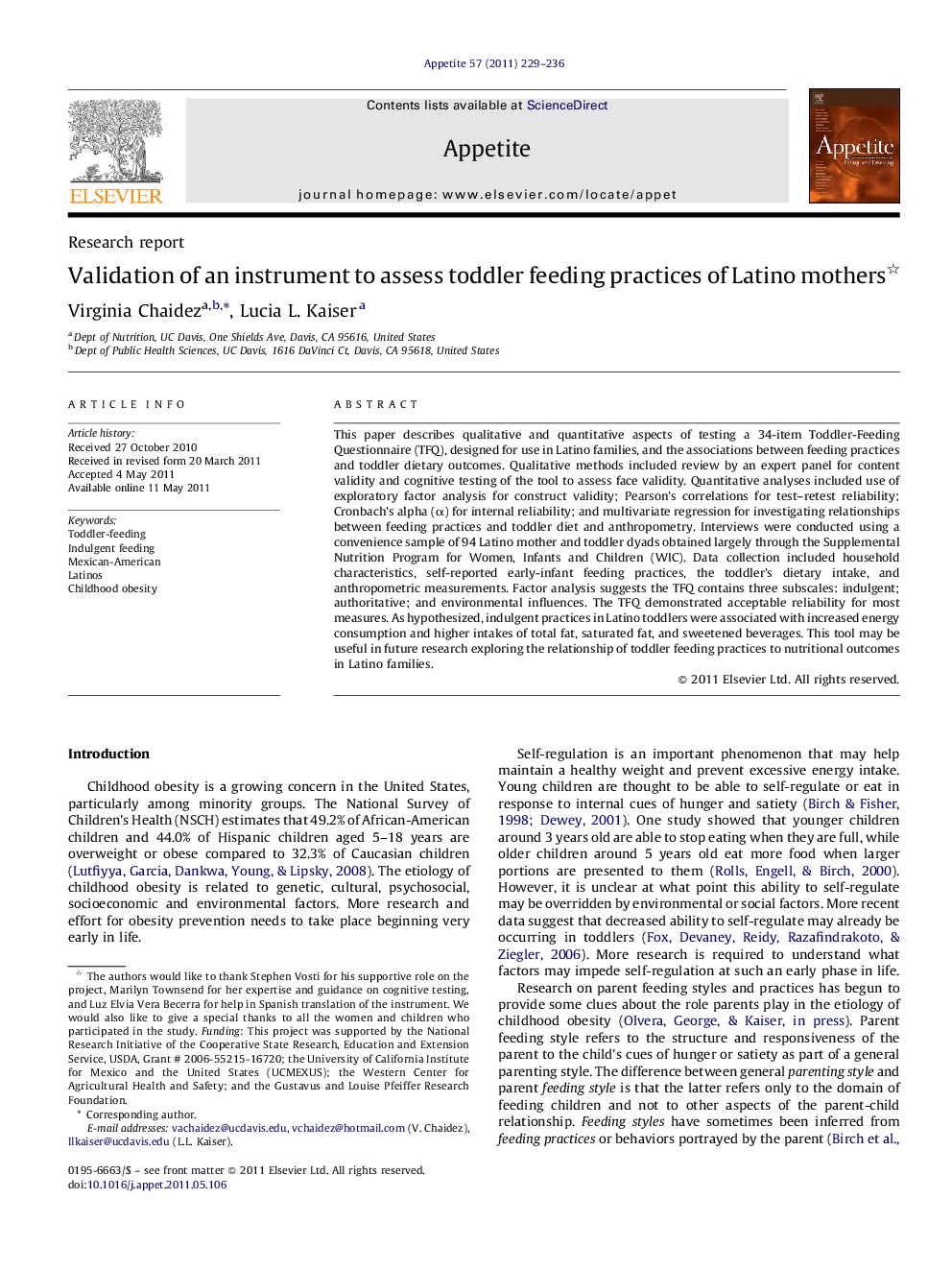| Article ID | Journal | Published Year | Pages | File Type |
|---|---|---|---|---|
| 940303 | Appetite | 2011 | 8 Pages |
This paper describes qualitative and quantitative aspects of testing a 34-item Toddler-Feeding Questionnaire (TFQ), designed for use in Latino families, and the associations between feeding practices and toddler dietary outcomes. Qualitative methods included review by an expert panel for content validity and cognitive testing of the tool to assess face validity. Quantitative analyses included use of exploratory factor analysis for construct validity; Pearson's correlations for test–retest reliability; Cronbach's alpha (α) for internal reliability; and multivariate regression for investigating relationships between feeding practices and toddler diet and anthropometry. Interviews were conducted using a convenience sample of 94 Latino mother and toddler dyads obtained largely through the Supplemental Nutrition Program for Women, Infants and Children (WIC). Data collection included household characteristics, self-reported early-infant feeding practices, the toddler's dietary intake, and anthropometric measurements. Factor analysis suggests the TFQ contains three subscales: indulgent; authoritative; and environmental influences. The TFQ demonstrated acceptable reliability for most measures. As hypothesized, indulgent practices in Latino toddlers were associated with increased energy consumption and higher intakes of total fat, saturated fat, and sweetened beverages. This tool may be useful in future research exploring the relationship of toddler feeding practices to nutritional outcomes in Latino families.
► Validity measures of the TFQ provide support for use in Latino populations. ► Indulgent feeding practices are associated with increased toddler caloric intake. ► The influence of feeding practices may begin very early in life.
